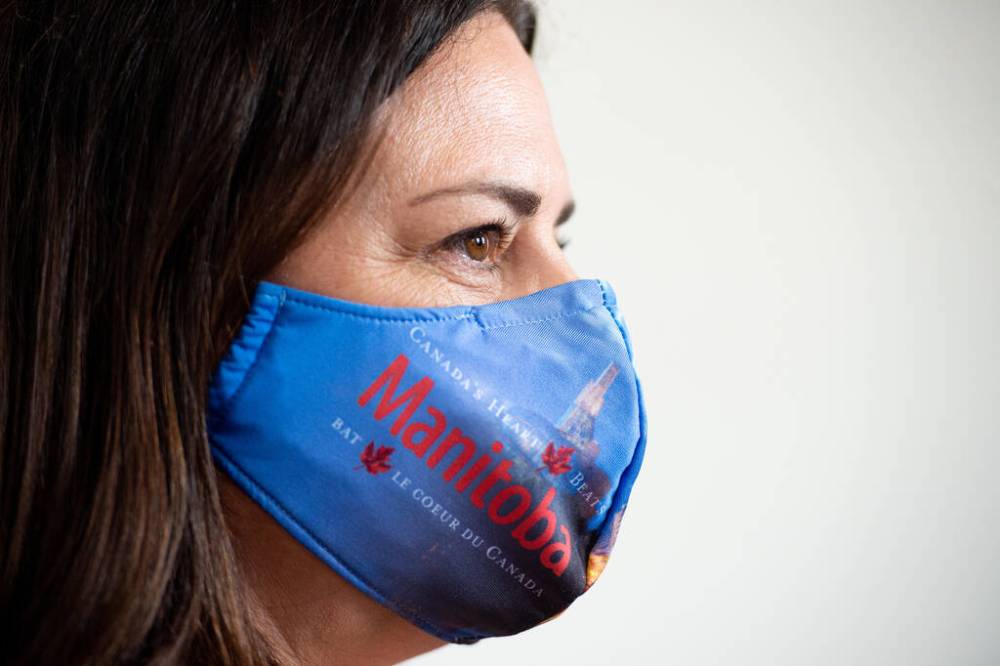Ottawa, premiers get ready for annual spring dance Provinces want more money for health, feds want Canadians to know where it came from
Read this article for free:
or
Already have an account? Log in here »
To continue reading, please subscribe:
Monthly Digital Subscription
$0 for the first 4 weeks*
- Enjoy unlimited reading on winnipegfreepress.com
- Read the E-Edition, our digital replica newspaper
- Access News Break, our award-winning app
- Play interactive puzzles
*No charge for 4 weeks then price increases to the regular rate of $19.00 plus GST every four weeks. Offer available to new and qualified returning subscribers only. Cancel any time.
Monthly Digital Subscription
$4.75/week*
- Enjoy unlimited reading on winnipegfreepress.com
- Read the E-Edition, our digital replica newspaper
- Access News Break, our award-winning app
- Play interactive puzzles
*Billed as $19 plus GST every four weeks. Cancel any time.
To continue reading, please subscribe:
Add Free Press access to your Brandon Sun subscription for only an additional
$1 for the first 4 weeks*
*Your next subscription payment will increase by $1.00 and you will be charged $16.99 plus GST for four weeks. After four weeks, your payment will increase to $23.99 plus GST every four weeks.
Read unlimited articles for free today:
or
Already have an account? Log in here »
Hey there, time traveller!
This article was published 19/04/2022 (1334 days ago), so information in it may no longer be current.
There’s a reason why the federal government is reluctant to boost health-care transfers to the provinces beyond its existing funding formula: it gets virtually no political credit for handing over more cash to provincial governments unless there’s at least an appearance of strings attached.
That’s been the reality of federal funding for health care in Canada since the beginning of medicare. Provinces run health care and pay for most of it. They agree to follow the terms of the Canada Health Act in exchange for a shrinking financial contribution from Ottawa. Provincial premiers are happy to take the cash, but balk at any federal “intrusion” on how to spend it. The federal government is eager to fund health care but isn’t satisfied with its role as a mere broker of money. Federal politicians want their contributions to be visible to the public, like the recent child-care agreements they signed with the provinces.
And so the dance begins, as it does almost every year around this time: the provinces claim the federal government’s contribution to health care continues to shrink and Ottawa says it’s willing to talk about more funding, but only if it can get value for its money.
British Columbia Premier John Horgan went as far as saying over the weekend that Ottawa should hold off on its new national dental program until it provides sustainable funding to the provinces for existing health-care services.
Manitoba Premier Heather Stefanson reiterated last week that Ottawa is paying only 22 per cent of the cost of health care, and it’s not enough. The premiers want Ottawa to cover at least 35 per cent of the cost.

Prime Minister Justin Trudeau and Finance Minister Chrystia Freeland have both said in recent weeks that simply throwing more money at health care isn’t the answer. While they are prepared — perhaps — to offer more cash, they want assurances the money will result in better care.
It’s hard to blame them, after billions of dollars in additional health-care funding over the past 18 years did little to improve outcomes. At the same time, some provinces — including Manitoba — have been cutting taxes, suggesting maybe they don’t need the money, after all. The Stefanson government announced $166 million in tax cuts in last week’s provincial budget, while increasing core health-care funding by only 1.6 per cent.
Still, trying to attach strings to new federal health-care dollars is a mug’s game. Ottawa tried it in 2004 under then-prime minister Paul Martin, who famously claimed that his 10-year deal with the provinces (which included six per cent annual funding increases) would “fix health care for a generation.” It didn’t.
Under the 2004 “health-care summit” deal, provinces agreed to establish wait-time benchmarks for procedures such as orthopedic and cataract surgery in exchange for higher transfer payments. Trouble is, the benchmarks were just that — benchmarks. They weren’t enforceable and, practically speaking, they couldn’t be. So nothing really changed.
Under the 2004 “health-care summit” deal, provinces agreed to establish wait-time benchmarks for procedures such as orthopedic and cataract surgery in exchange for higher transfer payments. Trouble is, the benchmarks were just that– benchmarks.
After Stephen Harper took over as prime minister in 2006, he honoured the Liberals’ 10-year deal and even extended it by two years. After that, Trudeau’s Liberals adopted a formula based on annual increases tied to nominal GDP, with a minimum increase of three per cent.
Is Canada ripe for another 2004-style health-care deal, one with higher annual transfers and loose conditions attached, so Ottawa can get its political credit? Perhaps. Would it change much? Probably not.
A more sensible arrangement would be for the federal government to transfer tax points to the provinces, where Ottawa reduces its taxes and allows the provinces to raise theirs by a commensurate amount to pay for health care. That way the level of government doing the taxing could be held directly accountable for the money it collects and spends. They did a version of that in the 1970s when the cost of health care began to rise. The federal government still refers to that tax-point transfer when calculating its “share” of health-care funding.
A more sensible arrangement would be for the federal government to transfer tax points to the provinces, where Ottawa reduces its taxes and allows the provinces to raise theirs by a commensurate amount to pay for health care.
The downside for Ottawa is that it would get little, if any, political credit after the tax points were transferred. The federal government would much prefer the bells and whistles of another health-care summit. That’s probably what Canadians are in for once Ottawa is ready to talk about renewed health-care funding.
tom.brodbeck@freepress.mb.ca


Tom has been covering Manitoba politics since the early 1990s and joined the Winnipeg Free Press news team in 2019.
Our newsroom depends on a growing audience of readers to power our journalism. If you are not a paid reader, please consider becoming a subscriber.
Our newsroom depends on its audience of readers to power our journalism. Thank you for your support.








